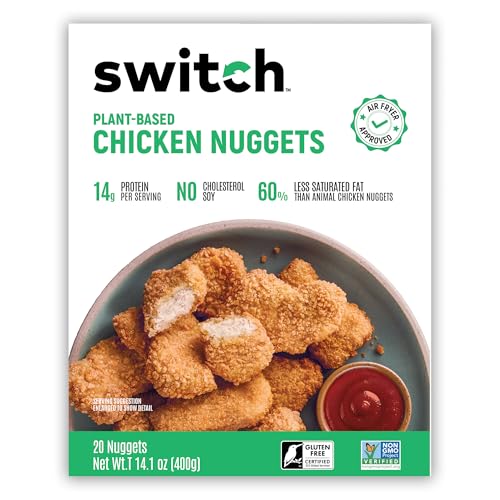The halal diet's your guide to food that's ethical and spiritually aligned. It prohibits pork and alcohol, ensuring meat is slaughtered according to specific regulations. It's gaining traction among both Muslims and non-Muslims who appreciate its focus on safety, quality, and animal welfare. With the global halal market booming, more plant-based options are also becoming available. If you're curious about how halal practices resonate with broader dietary trends, there's much more to discover.

When it comes to dietary choices, you might find the halal diet intriguing, as it encompasses food and drinks that comply with Islamic laws. For Muslim consumers, adhering to these Islamic dietary laws is essential, as they prohibit the consumption of pork and alcohol while requiring specific methods of animal slaughter. This adherence ensures that the food they consume isn't only permissible but also aligns with their spiritual beliefs.
Halal certification plays a vital role in this dietary practice. It guarantees that food meets the required standards, providing assurance to consumers about what they're eating. As the demand for halal options grows, regulations around halal certification are becoming stricter. Clear labeling and compliance with these standards are crucial, especially as consumer awareness around dietary choices expands.
Halal certification ensures food meets strict standards, offering consumers confidence in their dietary choices as demand for halal options grows.
The global halal food market is booming, valued at USD 2,221.3 billion in 2022 and projected to reach USD 4.1 trillion by 2028. This growth reflects an increasing interest from both Muslim and non-Muslim consumers who see halal food as a mark of quality. The appeal isn't just about religious adherence; halal food is often associated with food safety and hygiene practices that many find reassuring.
Interestingly, most plant-based foods fit within the halal framework unless they contain prohibited ingredients. This means that vegetarian and vegan options are widely available for those who prefer a meatless diet. You may find that many restaurants and grocery stores are expanding their halal selections, catering to a diverse audience seeking ethical standards in food sourcing.
Halal diets also resonate with non-Muslims who appreciate the ethical and hygienic aspects of halal food processing. These practices highlight animal welfare and food safety, making halal options appealing to a broader market.
As you explore this fascinating dietary choice, you might discover that halal foods not only fulfill religious obligations but also meet a growing demand for conscientious eating.
Frequently Asked Questions
What Is the Purpose of the Halal Diet?
The purpose of the halal diet is to guide you in making ethical and faith-aligned food choices.
By adhering to halal principles, you ensure that the food you consume is permissible and prepared in a humane manner. It fosters mindfulness, encouraging you to appreciate your meals while respecting animal welfare.
Additionally, following a halal diet strengthens your sense of community and cultural identity, connecting you with shared values among the global Muslim population.
Is Chick-Fil-A Halal?
Trying to find halal options at Chick-fil-A is like searching for a needle in a haystack.
Unfortunately, Chick-fil-A doesn't offer halal-certified chicken at its locations. Their poultry comes from suppliers that don't follow halal slaughter practices, so they can't guarantee halal status.
While some locations in areas with significant Muslim populations might've halal options, it's best to call ahead.
You might want to explore other fast-food chains that specifically provide halal meals instead.
What Are the Rules of Halal Diet?
The rules of a halal diet require you to consume only permissible foods, avoiding anything deemed haram, like pork and alcohol.
When it comes to meat, ensure it's sourced from animals slaughtered according to Islamic guidelines, known as Zabiha.
Most plant-based foods are halal unless they contain prohibited ingredients.
Always check for halal certification and maintain cleanliness in food preparation to prevent cross-contamination with haram substances.
Following these rules keeps your diet compliant and respectful.
What Is a Halal Diet Plan?
Ever wondered what a halal diet plan really involves? You'll find it's not just about avoiding certain foods.
A halal diet plan focuses on consuming permissible foods, primarily avoiding pork and alcohol. You'll enjoy a variety of options, from ethically sourced meats to delicious plant-based meals.
Each ingredient must meet halal standards, ensuring they're free from non-halal elements.

Halal Food Sticker,1inch 500pcs Green Small Halal Food Sticker for Restaurant
size:1 inch/25.4mm
As an affiliate, we earn on qualifying purchases.
As an affiliate, we earn on qualifying purchases.
Conclusion
Just like a well-tended garden, a halal diet nurtures both body and spirit. By choosing foods that align with your values, you cultivate a landscape of health, respect, and community. Each meal becomes a vibrant flower, blossoming with intention and purpose. As you embrace this dietary path, you're not just filling your plate; you're sowing seeds of mindfulness and faith. So, step into this garden, and let your choices flourish in harmony with your beliefs.

KJ Poultry Kosher Ready Meals – Chicken Meat Balls & Mushrooms, MRE Meat Meals Ready to Eat, Halal, (1 Pack) Prepared Entree Fully Cooked, Shelf Stable Microwave Dinner, Travel, Military, Camping
THE PERFECT MEAL: A special meal for a special day. Our Chicken Meat Balls follow all the strict…
As an affiliate, we earn on qualifying purchases.
As an affiliate, we earn on qualifying purchases.

Switch Foods Plant-Based Chicken Nuggets | Vegan | 14g Protein | Soy, Gluten, GMO, Allergen, & Dairy Free | Halal | 20 Pieces | 14.1 Oz
DELICIOUS & HEALTHY – Golden, crispy, and dippable plant-based nuggets that deliver the flavor and satisfaction of chicken…
As an affiliate, we earn on qualifying purchases.
As an affiliate, we earn on qualifying purchases.

Food Safety, Security, Sustainability and Nutrition as Priority Objectives of the Food Sector
As an affiliate, we earn on qualifying purchases.
As an affiliate, we earn on qualifying purchases.









